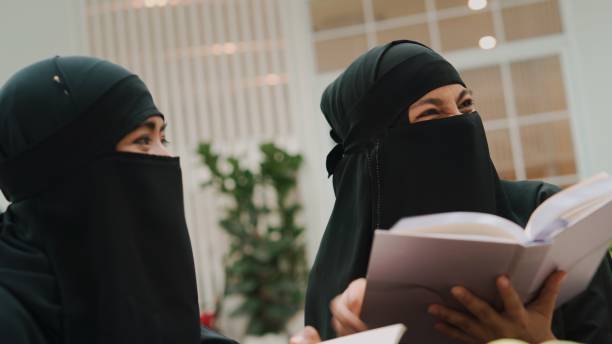September 18, 2023
In a significant development that has sparked debates on religious freedom and education, Egypt has announced a ban on the face veil, commonly known as the Niqab, in schools for the upcoming academic year, starting on September 30. It has ignited conversations and obtained reactions within the country. This decision has raised questions about the balance between religious expression and the secular nature of public education in Egypt.
This measure aims to maintain a balance between religious expression and maintaining a clear educational environment.
Regarding school uniforms, the ministry has introduced a coordinated approach. The school board, in collaboration with trustees, parents, and teachers, will determine the appropriate uniform colours for both male and female students.
This decision will be made in consultation with the Directorate of Education, ensuring a unified and coordinated appearance for all students.
Here is some insights of this new development:
The Egyptian government’s decision to ban the Niqab in schools is primarily rooted in concerns over security and the need for clear identification of individuals within educational institutions. Authorities argue that the Niqab makes it challenging to verify the identity of students, posing a potential security risk. Moreover, they claim that it could hinder communication and teaching, given that facial expressions play a crucial role in classroom interactions.

The Legal Framework:
Egyptian Constitution:
Egypt’s Constitution, promulgated in 2014, outlines the principles of religious freedom. Article 64 of the Constitution guarantees the freedom of belief and the freedom to practice religious rituals, subject to the law. However, these freedoms are not absolute and must be exercised within the limits defined by the law.
Education Laws:
Egypt’s education laws give the Ministry of Education broad authority to regulate the conduct and attire of students in schools. The Ministry argues that the Niqab ban falls within its jurisdiction to maintain order and discipline in educational institutions.
Judicial Precedents relating this matter:
Administrative Court Ruling (2015):
In 2015, the Egyptian Administrative Court issued a controversial ruling allowing female university students to wear the Niqab during exams. The court argued that the Niqab is a personal choice and should not be used as a reason to prevent students from pursuing their education.
Constitutional Court Ruling (2016):
The Egyptian Constitutional Court, in a 2016 ruling, upheld the legality of a university’s decision to ban female academic staff from wearing the Niqab while teaching. The Court maintained that universities have the authority to set dress codes for faculty to ensure effective teaching.
The Controversies:
The ban on the Niqab in schools has sparked widespread debates. Supporters of the ban argue that it promotes security and creates a more inclusive learning environment. Critics, however, see it as a violation of religious freedom and an encroachment on personal choices.

Editor’s view:
Egyptian government’s decision to ban the Niqab in schools for the upcoming academic year is a complex issue that intertwines religious freedom, security concerns, and the regulation of educational institutions. While the government contends that this move is necessary for identification and communication purposes, it has also obtained a passionate debate about the boundaries of personal religious expression and the role of the state in shaping cultural and educational norms. The legal framework and past judicial precedents offer important insights into this ongoing controversy, which will undoubtedly continue to evolve as it is debated and challenged within Egypt’s legal and societal contexts.

